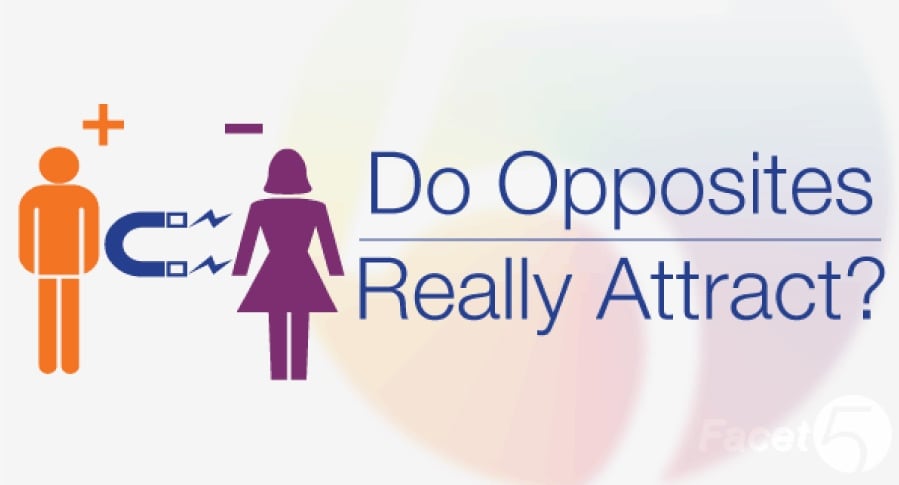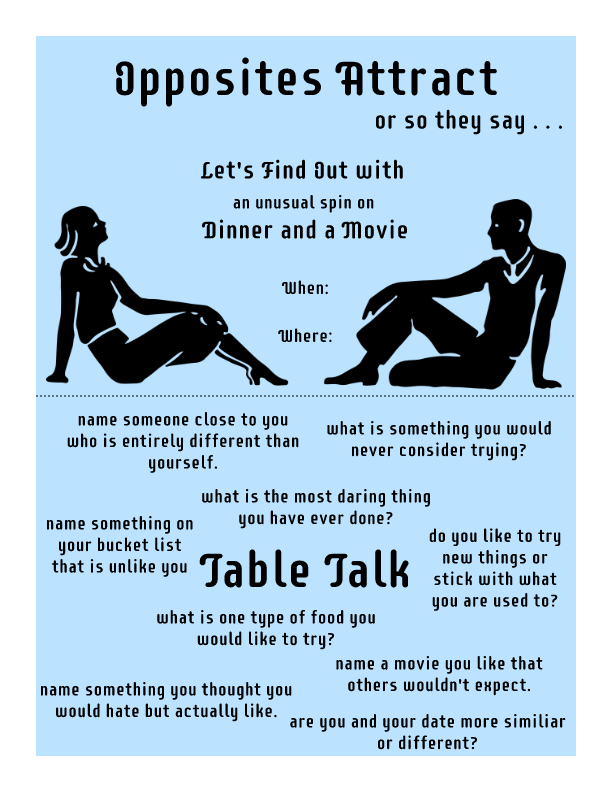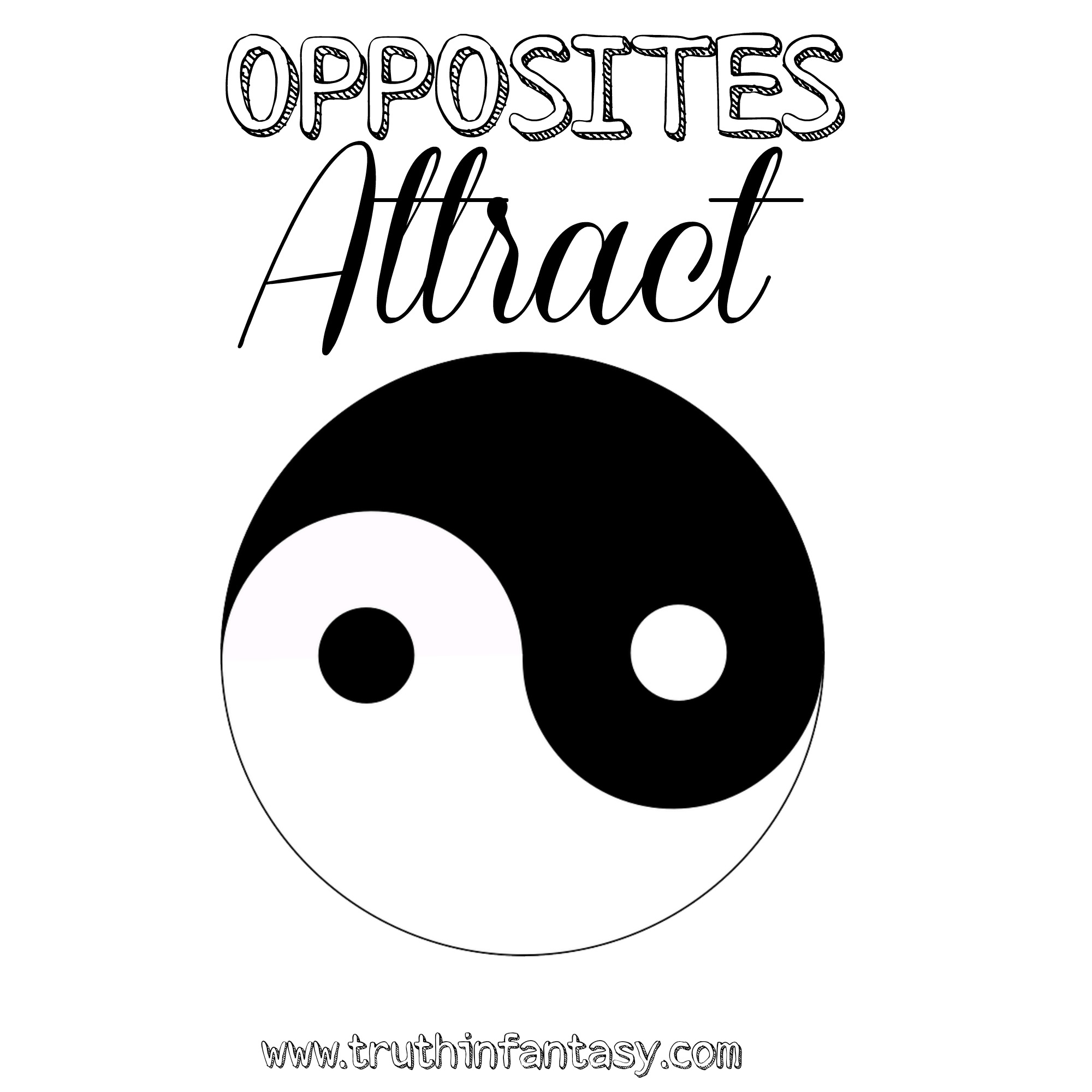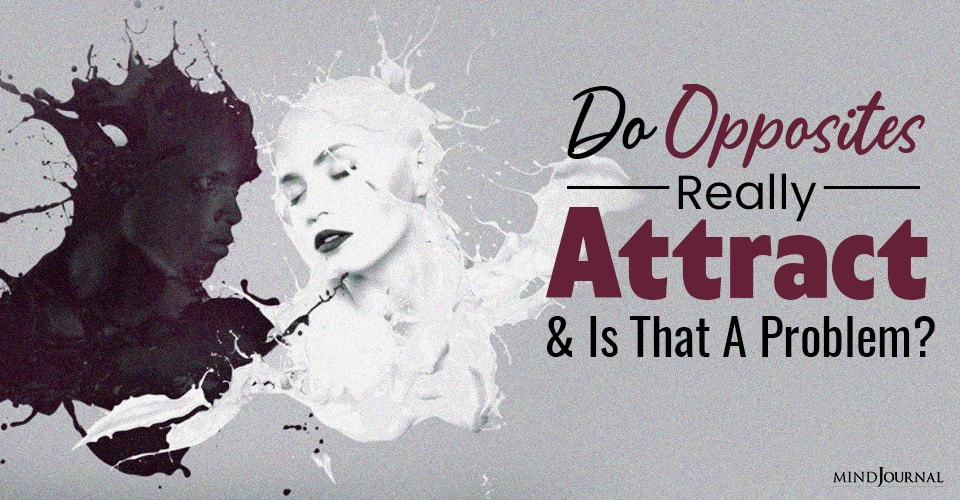
If you ask Paula Abdul, yes – it is true that opposites attract. And many other people who have found love with their opposites would also agree. In spite of the evidence, what we know about humans and our brain tells us that the truth about whether or not opposites attract is much more complicated than it may seem.
Is it True That Opposites Attract?
The answer to this age old question is yes, but also no. Over the years many studies have been conducted to see if people are in fact attracted to opposites. While many of these studies have found evidence that opposites do attract, they also found evidence that people are actually attracted to people who are more similar to them. Researchers have not been able to prove one way or the other. Instead, they have dug a little deeper into what types of people do enjoy being with their opposite and what types of people need someone that agrees with them.

A study conducted by Hudson and Fraley has come the closest to uncovering the truth about romantic relationships and when opposites are needed to make it work. They took their research a few steps further than other studies and have broke down people’s answers further into the 5 major types of personalities humans are known to have. More than just figuring out if opposites attract, they also wanted to know if people that are in relationships with their opposite actually happy or if those who are more similar seem to enjoy their married life more. Their results were mixed as well. To them it seemed that people who were generally agreeable were more attracted to agreeable partners. They also found that people who were more similar when it came to emotional stability were much more likely to be happy in their marriage.
What does that tell us about if opposites attract or not?
Nothing really conclusive except that people are attracted to people based on where they are in life. After their results left them with more questions, the researchers hypothesized something that could actually be proven. Based on their findings, they were eager to see if attachment styles learned during early development played a part in what kind a partner and relationship a person would seek out later in life. Their results could actually tell us the truth about when opposites attract and they don’t.

Attachment styles are developed during infancy and shape our view of the world for as long as we live. Most commonly people have one of two types of attachment style, one that avoids emotions (and issues) and one that preoccupies themselves with how their partner sees them and whether or not there have been changes. The latter of the two being the more anxious type, was also found to be the type of partner that sought out an opposite, perhaps to balance themselves out. It was found that those that tended to be more avoidant also sought an avoidant partner, because in their case, an opposite would cause too much conflict.

So the truth is, it’s not as simple as yes or no. Sometimes opposites attract and sometimes they do not.
So, if you’re wondering why opposites attract in friendships, couples, or on Reddit, it may help to know a little bit about the science behind it.
In the first place, opposites don’t just attract — they also repel. We tend to be attracted to people who are similar to us because it makes us feel good about ourselves and our own choices. It’s also easier for us to connect with people who share our interests and values.
But when we meet someone who is different from us — whether in appearance or behavior — we find them more interesting than someone who is similar. And that interest may lead us down a path of attraction that we might not have otherwise taken.
The idea that opposites attract is a popular one. It makes sense: We have plenty of friends and partners who are nothing like us, and we enjoy our differences. But is it true? Is there any science to back up the idea that opposites really do attract?
Is it true that opposites attract in friendships?
It depends on how you define “opposite.” If you mean someone who’s totally different from you — a vegan with an interest in classical music, say — then no. If you mean someone who has a very different personality from yours, then yes. A study published in the Journal of Personality and Social Psychology found that people tend to choose friends who share their personality traits, but don’t differ too much from them (in other words, they’re not complete opposites). So if you’re outgoing and friendly, you may find yourself attracted to another outgoing person who also likes talking about current events or sports.

Another study found that people often choose friends who are similar to them when it comes to agreeableness (being kind) and conscientiousness (being responsible). So if your best friend is kind of bossy and organized, it might be because those qualities attracted him or her to
It is evident that opposites attract. This is because we all have our own unique personalities and traits that make us who we are.
In the case of friends, opposites often attract because they find each other interesting and stimulating. Opposites also tend to complement each other when it comes to interests and hobbies. The same thing applies to couples.
It is true that opposites attract in friendships as well as relationships, but this doesn’t mean that you should date someone who has opposite values or beliefs from yours. If you want to date someone with opposing views, then make sure that you can compromise and respect each other’s differences.
The majority of people don’t believe in love at first sight, but there are some people who believe in this concept wholeheartedly! Some people believe that love at first sight is real because they believe that they will know if their partner is the one for them when they first meet them!

Well, it’s complicated.
The idea of opposites attracting is not new. In fact, it’s ancient. But it’s also not true.
You’ve heard the saying that opposites attract, right? It seems like a good thing at first glance: If you’re outgoing and friendly, then I’ll be shy and quiet! If you’re a night owl and I’m an early bird, then we should get along just fine! If you’re messy and I’m neat — well, that could work too!
But the truth is that opposites don’t really attract — not in the long run anyway. And if they do, it’s probably because there is some sort of unifying force that brings them together (like one or both partners are lonely).
The problem with “opposites attract” is that people tend to think about their own qualities as being normal and average, while other people’s qualities seem strange or abnormal. For example: Someone who is quiet might see someone who is loud as being loud, while someone who is loud might see someone who is quiet as being quiet — but neither person sees themselves as loud or

The idea that opposites attract is a myth.
When it comes to relationships, we tend to think that opposites attract because people who have a lot in common will probably get bored and irritated with each other. However, this is far from true. In fact, studies have shown that couples who are similar in terms of personality are more likely to stay together than those who are not.
The reason for this is simple — couples who share the same interests, values and beliefs have a greater chance of understanding each other, which leads to fewer disagreements and arguments over time.
This doesn’t mean that there aren’t exceptions to this rule. For example, two people with opposite personalities may find themselves drawn together by their differences or contrasting qualities (i.e., introverts dating extroverts). In these cases, however, the relationship tends to be short-lived due to a lack of compatibility between them in other areas of life (i.e., long-term goals).